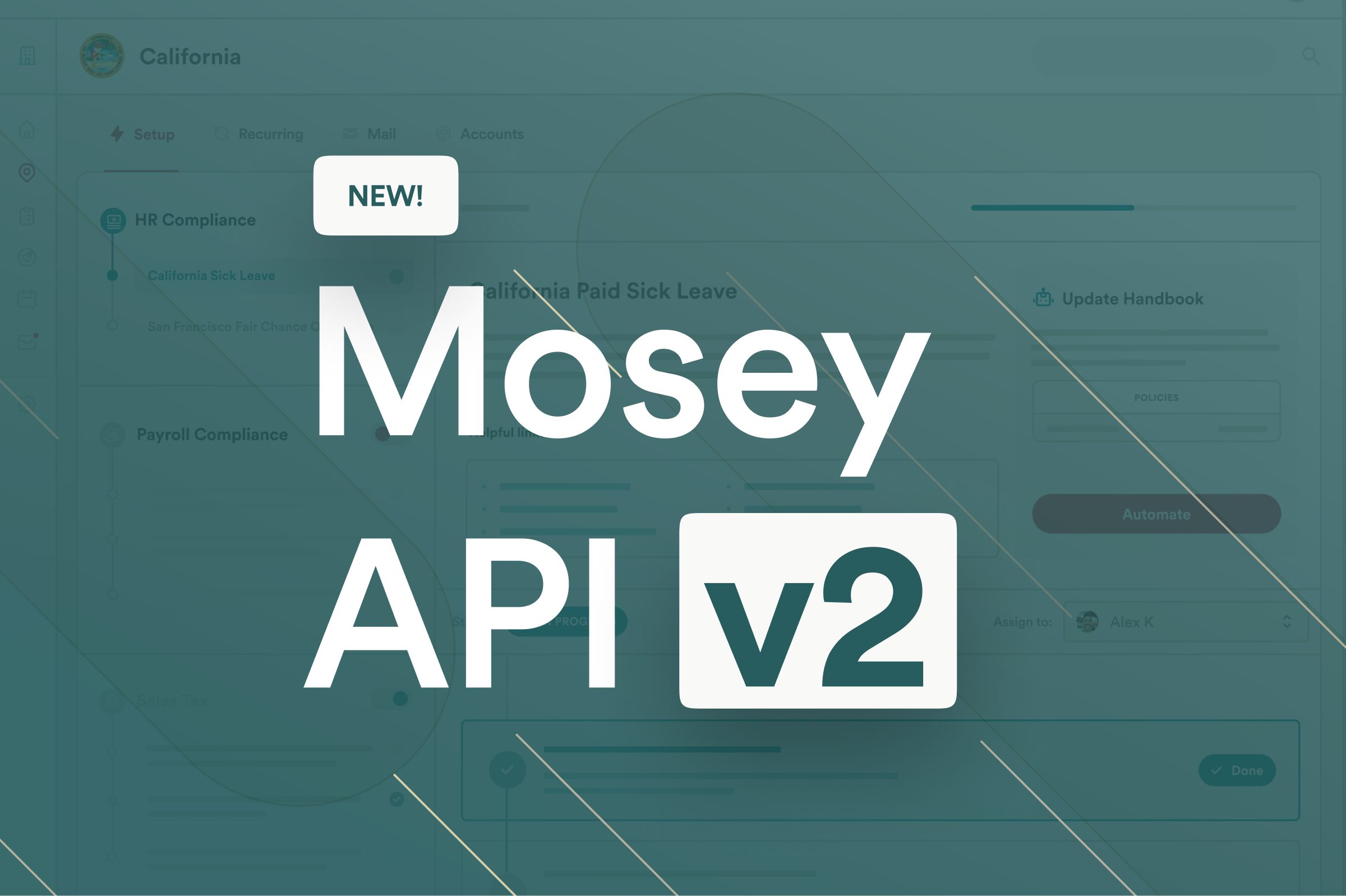Foreign qualification with the Secretary of State in Oregon is the process by which a business that was originally formed in another state registers to do business in Oregon. This allows the business to legally operate in Oregon and ensures compliance with state laws and regulations.
There are 4 different ways to foreign qualify in Oregon depending on your legal entity type and tax classification. Follow the guide below to help you register with the Secretary of State in Oregon or use Mosey to do it.
Use Mosey to register with the Secretary of State in Oregon.
Avoid the hassle of doing it yourself and use Mosey to automate foreign qualification, annual reports, and registered agent service.
Oregon Foreign Registration for Corporation
Foreign nonprofit corporations “doing business” in Oregon must register with the Secretary of State’s Corporation Division by filing an Application for Authority to Transact Business - Nonprofit. Oregon provides a non-exhaustive list of activities that constitute “doing business” in lieu of defining “doing business.” The filing fee is $50. Applications can be filed by mail or electronically.
Acquire a Certificate of Existence
You will need to obtain a certificate of existence (in addition to providing your company's registry number from its home jurisdiction), affirming its existence in your home jurisdiction.
Establish a Registered Agent and Registered Office
All business entities are required to appoint and maintain a registered agent who has a physical street address in Oregon whose sole responsibility is to accept legal documents (service of process, lawsuits, liens, subpoenas, etc.) on behalf of the business. Registered agents may not list a post office box, commercial mail receiving agency, or private mailbox.
Create a Business Registry Account
Visit the Secretary of State’s Business Registry website and select “New User” to create an Oregon Business Registry account.
File Your Application for Authority to Transact Business
Log in to your Business Registry account to complete and file your application with appropriate attachments and pay the filing fee electronically. Upon successful registration, you will be assigned a Business Registry Number.
Oregon Foreign Registration for LLP
In Oregon, any entity deemed to be "doing business" needs to register with the Secretary of State. Any entity doing business must obtain authority from the Oregon Corporation Division by submitting an application form, fee, and an original certificate of existence (or similar document) or registration number from the state where they incorporated/organized.
Obtain a Certificate of Existence
If your home jurisdiction (where you incorporated/organized) does not provide public online verification of existence/good standing, you will need to obtain a Certificate of Existence (also known as a Certificate of Good standing) issued within the last 60 days.
Establish a Registered Agent and Registered Office
All business entities are required to appoint and maintain a registered agent who has a physical street address in Oregon whose sole responsibility is to accept legal documents (service of process, lawsuits, liens, subpoenas, etc.) on behalf of the business. Registered agents may not list a post office box, commercial mail receiving agency, or private mailbox.
Create a Secure Access System Online Account
If you have not already done so, create an account with the Oregon Secretary of State Secure Access System to register and manage your business filings online.
File an Application for Authorization
File a Foreign Limited Liability Partnership Application for Authorization and pay the filing fees online through the Oregon Secretary of State Secure Access System. Upon successful registration, you'll be assigned a Business Registry Number.
Oregon Foreign Qualification for PLLC, LLP, LLC
In Oregon, any entity deemed to be "doing business" needs to register with the Secretary of State. A business is clearly "doing business" in the state if it has an office or employees (or representatives) who are either providing services to customers as the primary business activity or providing services incidental to the sale of tangible or intangible personal property. Additionally, if a business has an economic presence through which it regularly takes advantage of Oregon's economy to produce income it will be deemed to be doing business. Any entity doing business must obtain authority from the Oregon Corporation Division by submitting an application form, fee, and an original certificate of existence (or similar document) or the registration number from the jurisdiction where their articles of incorporation are filed.
Acquire a Certificate of Existence
You will need to obtain a certificate of existence (in addition to providing your company's registry number from its home jurisdiction), affirming its existence in your home jurisdiction.
Establish a Registered Agent and Registered Office
All business entities are required to appoint and maintain a registered agent who has a physical street address in Oregon whose sole responsibility is to accept legal documents (service of process, lawsuits, liens, subpoenas, etc.) on behalf of the business. Registered agents may not list a post office box, commercial mail receiving agency, or private mailbox.
File an Application for Authority to Transact Business
You can file an Application for Authority to Transact Business through the Secretary of State's Oregon Business Registry website. Upon successful registration, you'll be assigned a Business Registry Number.
Oregon Foreign Qualification for Professional Corporation, Corporation
In Oregon, any entity deemed to be "doing business" needs to register with the Secretary of State. A business is "doing business'" in the state if it has an office or employees (or representatives) who are either providing services to customers as the primary business activity or providing services incidental to the sale of tangible or intangible personal property. Additionally, if a business has an economic presence through which it regularly takes advantage of Oregon's economy to produce income it will be deemed to be doing business. Any entity doing business must obtain authority from the Oregon Corporation Division by submitting an application form, fee, and an original certificate of existence (or similar document) or the registration number from the jurisdiction where their articles of incorporation are filed.
Acquire a Certificate of Existence
You will need to obtain a certificate of existence (in addition to providing your company's registry number from its home jurisdiction), affirming its existence in your home jurisdiction.
Establish a Registered Agent and Registered Office
All business entities are required to appoint and maintain a registered agent who has a physical street address in Oregon whose sole responsibility is to accept legal documents (service of process, lawsuits, liens, subpoenas, etc.) on behalf of the business. Registered agents may not list a post office box, commercial mail receiving agency, or private mailbox.
File an Application for Authority to Transact Business
File an Application for Authority to Transact Business through the Secretary of State's Oregon Business Registry website. Upon successful registration, you'll be assigned a Business Registry Number.
What else do I need to know?
Once you are registered with the Secretary of State, you may have additional requirements to maintain your "good standing" in the state. Failing to do so can result in fines, back taxes, and forfeiting certain priveleges within the state.
Maintaining a Registered Agent
Most states require that you have a registered agent that can receive important mail from the Secretary of State should they need to contact you. There are many commercial options available or you can use Mosey to be your registered agent and keep your information private in Oregon.
Annual Reports and Taxes
In addition to maintaining a registered agent, most states require you to file a report annually. Registration can also trigger state taxes such as a franchise tax or income tax. You can use Mosey to identify these additional requirements to maintain good standing in Oregon.



